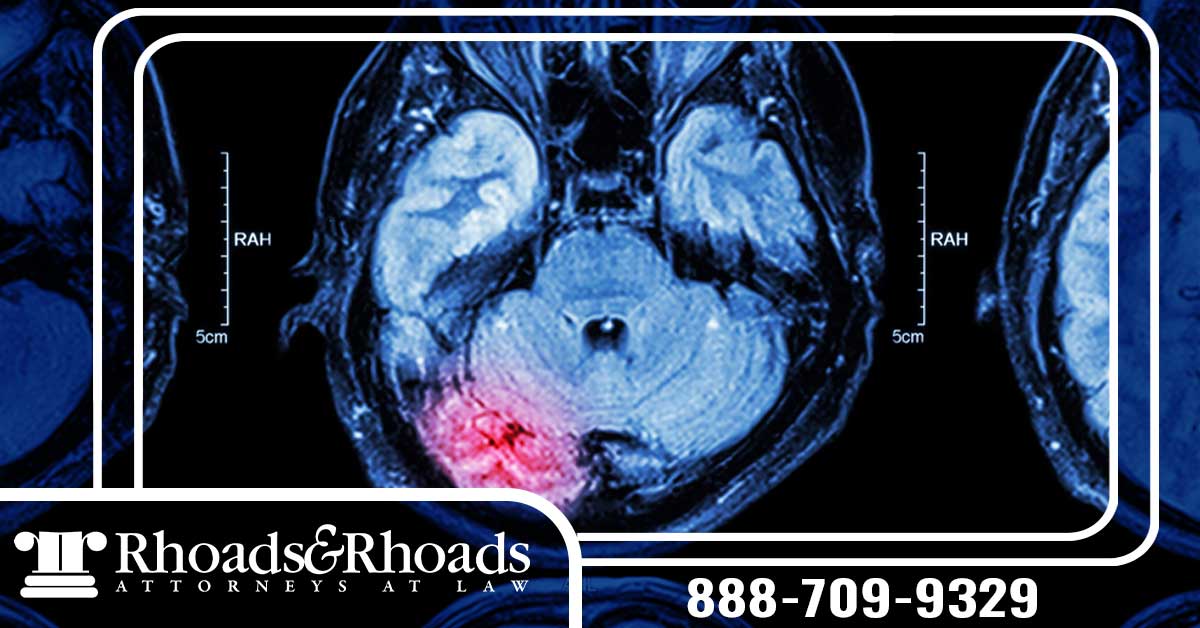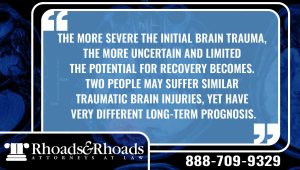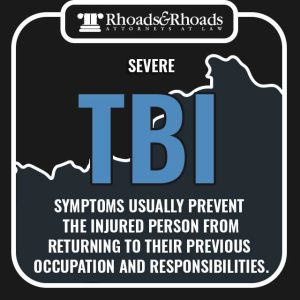
When someone suffers a severe traumatic brain injury, their life changes in an instant. The long-term effects of a brain injury can be devastating – impacting everything from physical mobility and cognitive function to emotional well-being and the ability to work.
Suppose you or a loved one has sustained a brain injury due to someone else’s negligence. In that case, you may be facing a long road to recovery filled with hefty medical bills, lost income, and perhaps a permanent impairment or disability. You deserve full and fair compensation to cover all of your injury-related losses, but how much is enough for a severe injury with lifelong consequences?
Understanding the Potential for Recovery
 So, can people recover from a brain injury? Brain injuries exist on a wide spectrum of severity. With a mild concussion, most people can recover fully within a few weeks or months if they get proper rest and treatment. However, moderate to severe traumatic brain injuries (TBIs) often cause lasting physical, emotional, and cognitive impairments.
So, can people recover from a brain injury? Brain injuries exist on a wide spectrum of severity. With a mild concussion, most people can recover fully within a few weeks or months if they get proper rest and treatment. However, moderate to severe traumatic brain injuries (TBIs) often cause lasting physical, emotional, and cognitive impairments.
After a serious TBI, the brain’s ability to heal is limited. Some functions may be restored through compensatory strategies or adaptive techniques with time and rehabilitation. However, significant deficits frequently remain, requiring lifelong medical care, assisted living, home modifications, and other costly support services.
The more severe the initial brain trauma, the more uncertain and limited the potential for recovery becomes. Two people may suffer similar traumatic brain injuries, yet have very different long-term prognosis based on their age, overall health, therapy regimen, and the exact location and extent of brain damage sustained.
This uncertainty makes TBI cases legally complex when it comes to proving future losses and lifelong needs. Experienced legal representation from a brain injury lawyer is essential to putting maximum value on your TBI claim and recovery.
Four Major Long-Term Impacts of Severe Brain Trauma
While every brain injury case is unique, victims of mild, moderate and severe TBIs often face one or more of the following long-term challenges:
-
 Physical disabilities: Problems with mobility, balance, coordination, muscle control/paralysis, severe headaches, seizures, speech memory loss, concentration, and vision impairment. Other neurological-based physical symptoms are common after moderate/severe TBIs.
Physical disabilities: Problems with mobility, balance, coordination, muscle control/paralysis, severe headaches, seizures, speech memory loss, concentration, and vision impairment. Other neurological-based physical symptoms are common after moderate/severe TBIs. - Cognitive and behavioral issues: Memory loss, slowed information processing, impaired judgment and decision-making ability, shortened attention span, lack of self-control (aggression, impulsivity), and difficulty comprehending communication are frequent effects.
- Loss of independence: Due to the combination of physical, cognitive, and behavioral impairments, many TBI victims lose their ability to live independently, care for themselves, maintain interpersonal relationships, and participate in daily activities without assistance.
- Loss of career/income: Severe TBI symptoms usually prevent the injured person from returning to their previous occupation and responsibilities. Lost earning potential over a lifetime can equate to millions in economic damages.
The continuous medication, rehabilitation, nursing care, workplace accommodations, counseling, and other support services required to maximize recovery and quality of life for TBI survivors are costly.
How Personal Injury Law Views Traumatic Brain Injuries
 Because there is often no way to completely “cure” or reverse the effects of a traumatic brain injury, the law views severe TBI as a permanent injury causing irreversible harm and losses. From a legal standpoint, the victim is entitled to compensation for all related past and future medical care, loss of earnings, personal/professional impairment, permanent disability, pain and suffering, and diminished quality of life.
Because there is often no way to completely “cure” or reverse the effects of a traumatic brain injury, the law views severe TBI as a permanent injury causing irreversible harm and losses. From a legal standpoint, the victim is entitled to compensation for all related past and future medical care, loss of earnings, personal/professional impairment, permanent disability, pain and suffering, and diminished quality of life.
Personal injury settlements for catastrophic brain injuries routinely run into the millions of dollars when future lifelong care plans, loss of income, and other economic and non-economic damages are accounted for.
When negligence causes a severe brain injury, working with an attorney experienced in these complex cases is crucial. Projecting a lifetime of anticipated medical needs, earning capacity, and necessary personal/professional support takes extensive documentation, expert testimony, and diligent estimation. An insurer is likely to fight against responsibility for these massive future costs.
Consult Rhoads & Rhoads After a Brain Injury
With the right legal representation, a maximal financial recovery can provide TBI victims and families with the resources to get through the ordeal and regain stability in the face of permanent, life-altering harm.
Here at Rhoads & Rhoads, our experienced attorneys are experts in brain injury cases. We can help you win your case and will work to maximize your compensation.
Call us today at 888-709-9329, or you can schedule your free consultation online here.


